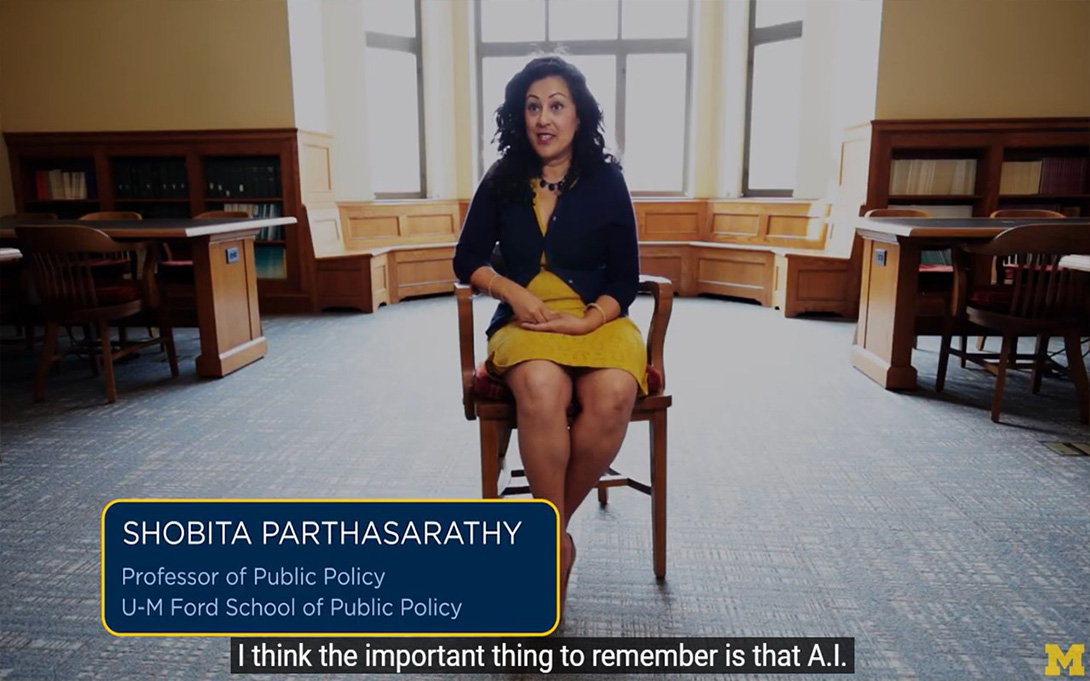
One year ago, OpenAI launched ChatGPT, a chatbot built on the large language model GPT-3. Since then, knowledge workers in all sectors have been grappling with the potential uses of it and similar artificial intelligence models—as well as the shortcomings of the models and what they produce.
Shobita Parthasarathy is a professor of public policy and director of the Science, Technology, and Public Policy Program. She is interested in how to develop innovation—and innovation policy—to better achieve public interest and social justice goals. She spoke about AI earlier this year on the Business & Society podcast.
"Over the last year, the world has woken up to artificial intelligence, and the public discussion that has emerged is incredibly important. But in the process, we must be careful not to approach AI either as an asteroid coming to destroy us all or a magic wand that will make our problems disappear," she said. "It is made by and for humans, and we as citizens have a crucial role to play in shaping it to maximize the benefits and eliminate the harms.
"I have been heartened by the steps taken by union leaders, the Biden administration, and the European Union to regulate the technology, but much more needs to be done. We must exercise our power to oversee the continued development and regulation of artificial intelligence."
Video: "AI in society: A cautionary tale"
This was created by Katherine McAlpine and Jared Wadley of Michigan News.
More news from the Ford School